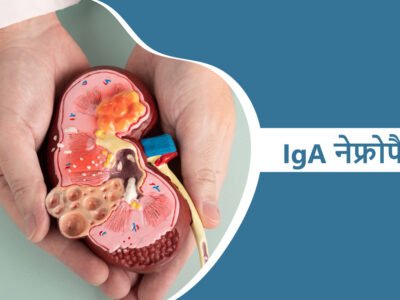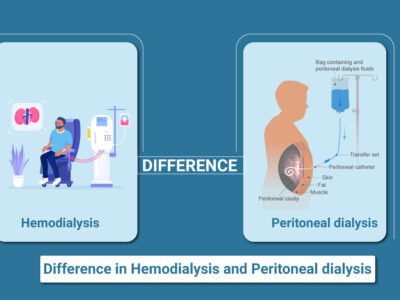Kidneys are vital organs responsible for filtering waste and excess fluids from the blood, regulating blood pressure, and maintaining overall health. However, owing to genetic shortage the kidney will not operate as intended, and severe medical ailments occur. Genetic kidney disease is a condition that is passed down from generation to and involves the kidneys, the body’s organs whose primary function is the purification of waste from the blood. It is therefore necessary to have such conditions explained early to attempt to manage them to have an optimum quality of life.
What are Genetic Kidney Diseases?
Genetic kidney disease are disease in which an individual has inherited a gene that has impacted the structure or function of the kidneys. These mutations can be associated with mild kidney dysfunction to end-stage renal failure. Therefore, whereas acquired kidney diseases are diseases of the renal parenchyma that arise as a consequence of external factors such as infection or lifestyle choices, genetic kidney disease is intrinsic to the child and inherited from one generation to the other.
Common Types of Genetic Kidney Disorders
Genetic kidney problems are many, but perhaps the most famous and prevalent is Autosomal Dominant Polycystic Kidney Disease (ADPKD).
ADPKD is an autosomal dominant disease characterised by:
ADKPD kidney disease is present in about one in 500 to 1,000 people globally, making it the most common genetic kidney disease. This condition is marked by the growth of multiple cysts in the kidneys the subsequent enlargement of these organs and possible impairment of their function in the long run.
- Symptoms and Progression: The cysts grow in size and become multiple in ADPKD leading to an increase in the size of the kidneys and eventually ESRD. The symptoms manifest in adulthood and often at the age of thirty to fifty years. The signs include; abnormal colouration of the skin, high blood pressure, back or side pain and presence of blood in the urine. During the years, the patients may develop recurrent infections of the kidneys, formation of kidney stones, and CKD or ESRD.
- Genetics of ADPKD: ADPKD kidney disease is inherited in an autosomal dominant manner due to germline mutation in PKD1 or PKD2 oncogenes. These mutations are inherited as autosomal dominant; therefore if one of the parents is affected, the likelihood that a child will be affected is 50:50. Sometimes it is severe, other times it is less so, and this is even in siblings who both have the same mutation, aspects that have not been explained as yet.
- Treatment and Management: ADPKD disease is at the moment an incurable disease, though medical approaches can be applied that alleviate the indications of the illness and mitigate the course of the disease. These are such as the use of appropriate measures in managing such factors as blood pressure, and pain as well as treating complications due to infections, formation of kidney stones and others. In far stages of kidney disease, the patient may require dialysis or a kidney transplant to treat the problem.
Alport Syndrome
Alport Syndrome is another inherited kidney disease that primarily affects the kidneys, ears, and eyes. This form of the condition is caused by mutations in genes that regulate the manufacture of collagen, a protein that is critical for the structure and functioning of the kidneys.
- Symptoms and Progression: Alport Syndrome has ramifications that require escalated renal function, hearing problems, and ocular structure. It is characterised by symptoms that start in childhood, then may include such signs as haematuria, proteinuria, and hypertension. The disease has a renal component and can result in renal failure mostly during early adulthood.
- Genetics of Alport Syndrome: This condition is normally inherited in an X-linked fashion and this is because the gene that is mutated is always found on the X chromosome. Men are usually more affected than women because they have one X chromosome only. Females have two X chromosomes and they may be carriers and hence pass this disease to their children.
- Treatment and Management: Treatment of Alport Syndrome does not have any cure but aims at reducing the rate of kidney deterioration and early treatment of symptoms. This entails drugs that regulate blood pressure and minimise proteins in the urine. If there is kidney failure then one has no option but to undergo dialysis or get a kidney transplant done.
Other Genetic Kidney Diseases
- Congenital Nephrotic Syndrome: This is a very stripped genetic disorder that occurs in infancy, symptoms include severe proteinuria, oedema, growth retardation and renal failure. The treatment consists of the control of symptoms and may necessitate dialysis or a kidney transplant.
- Tuberous Sclerosis Complex (TSC): TSC is a hereditary ailment causing the development of benign tumours in different organs like the kidneys. These tumours may increase kidney size develop cysts and in some occasions lead to renal failure. There is no cure for TSC but the disorder can be managed, by frequent checkups and by controlling its manifestations.
- Medullary Cystic Kidney Disease (MCKD): MCKD also known as Medullary Cystic Kidney disease is a hereditary ailment that leads to the formation of cysts in the inner area of the kidneys. Kidney failure, normally by the time one is an adult is the common outcome of the said condition. It concerns symptom control in case of kidney failure, as the disease enters the management field.
The Impact of Genetic Kidney Diseases
The impact of genetic kidney disorders extends beyond physical health, affecting patients’ emotional well-being, lifestyle, and family planning decisions.
- Emotional and Psychological Impact: As it has been pointed out, living with a genetic kidney disease can sometimes cause one to experience emotional issues. Such effects may include anxiety, depression, and iatrogenic stress, which represents a sustained, vague sense of tension and apprehension about the future. That the condition can be inherited to children is also another source of stress. Psychotherapy can also be effective in the treatment of the disease as well as providing support to the patient and his or her family.
- Family Planning Considerations: Family planning for particularly a family that has an inherited form of Kidney disease is not an easy task. It has passed advice on genetic counselling, especially to couples who are planning to conceive in future. This will help them understand the possible implications of passing the condition to their offspring. Prenatal testing and preimplantation genetic diagnosis are possible measures of reducing the probability of having a child with the disorder couples may take.
- Lifestyle and Long-Term Management: Genetic kidney disease is usually a chronic ailment that demands the individual’s continued treatment, checkups, medications, plus on occasion – operations. They can also advise the patients to keep off alcohol, non-prescribed drugs, and smoking and ensure they eat their meals healthy and exercise. The various forms of these conditions must be diagnosed at an early stage so that the lifestyle inherent in patients with these conditions can be enhanced.
Conclusion
Hereditary kidney diseases like ADPKD and Alport syndrome can be very challenging for patients. Even though there is no cure, getting the right diagnosis early and managing the condition well can help slow down the disease and improve life. Patients and their families need to understand the genetic causes so they can take better care of their health and future. For those looking for expert care, Dr. Ravi Bhadania, the Best kidney specialist in Ahmedabad, provides specialized treatment and guidance to help patients handle these tough conditions.


